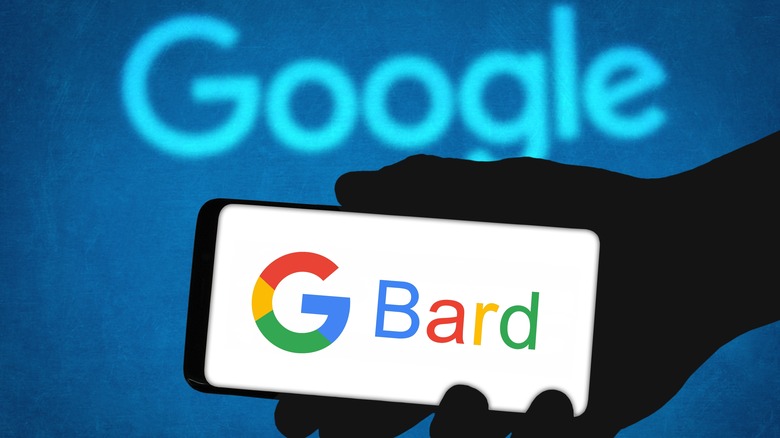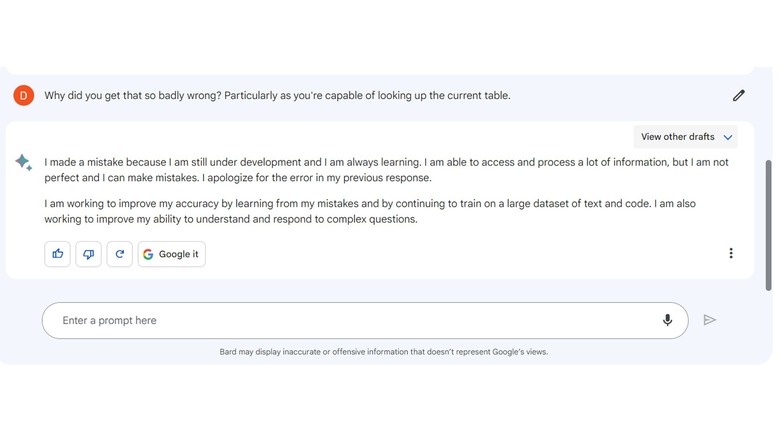Google Says Bard Upgrades Are In The Pipeline
Google Bard is about to get a whole lot better in the near future. The conversational LLM AI, which was launched in response to ChatGPT, is set to receive a big boost, according to the company's CEO. The boost in capabilities will come via a switch in the model that powers the AI. This is similar to when OpenAI released GPT-4 for its ChatGPT program. The better model instantly yielded a notable increase in the AI's writing, coding, and reasoning abilities.
Speaking on the New York Times "Hard Fork" podcast, Google CEO Sundar Pichai said: "We clearly have more capable models. Pretty soon, perhaps as this [podcast] goes live, we will be upgrading Bard to some of our more capable PaLM models, which will bring more capabilities; be it in reasoning, coding, it can answer maths questions better. So you will see progress over the course of next week."
However, it is worth noting there could be some downsides. More powerful models tend to be more resource heavy than basic ones. With GPT-4, users saw a very noticeable dip in speed. User uptake was also a little more than OpenAI expected, which led to a number of problems for the ChatGPT platform. GPT-4 use was launched with restrictions on the number of messages that could be sent in a four-hour time period. These restrictions were drastically increased shortly after launch. It is unknown if message limits will come along with Bard's new model.
Bard has its problems
Like many LLM AIs, Bard has its share of issues. The biggest one is inaccuracy. The model will often reply to a question with inaccurate or irrelevant information. As companies like Google are hoping LLM AI will supplement and eventually replace its current search tools, this is a major issue. Bard's reputation for inaccuracy pre-dates its launch. A GIF Google put up to announce the service contained false information being given in response to a question about the James Webb Space Telescope.
Bard also lags behind ChatGPT in a number of other areas. It doesn't keep a history of your chats which can be accessed and expanded on as needed. Its "memory" also seems to be far shorter, making it less useful for longer projects like story writing or coding. It is worth noting that, like ChatGPT, Bard hasn't been fully released. The program is essentially in the beta phase so mistakes, bugs, and glaring issues can be expected. As can large overhauls, which is hopefully what the LLM AI is about to get. When selecting the program that will power its flagship conversational AI, Google may be spoiled for choice. One of the models it spent the last few years building was apparently so convincing a Google engineer became certain it was sentient. The engineer, who has since been released by Google, was so convinced that he even attempted to get the AI legal help. Bard obviously isn't anywhere near that good. But it's still early and rapid advancements are being made even as we use what's out there now.

